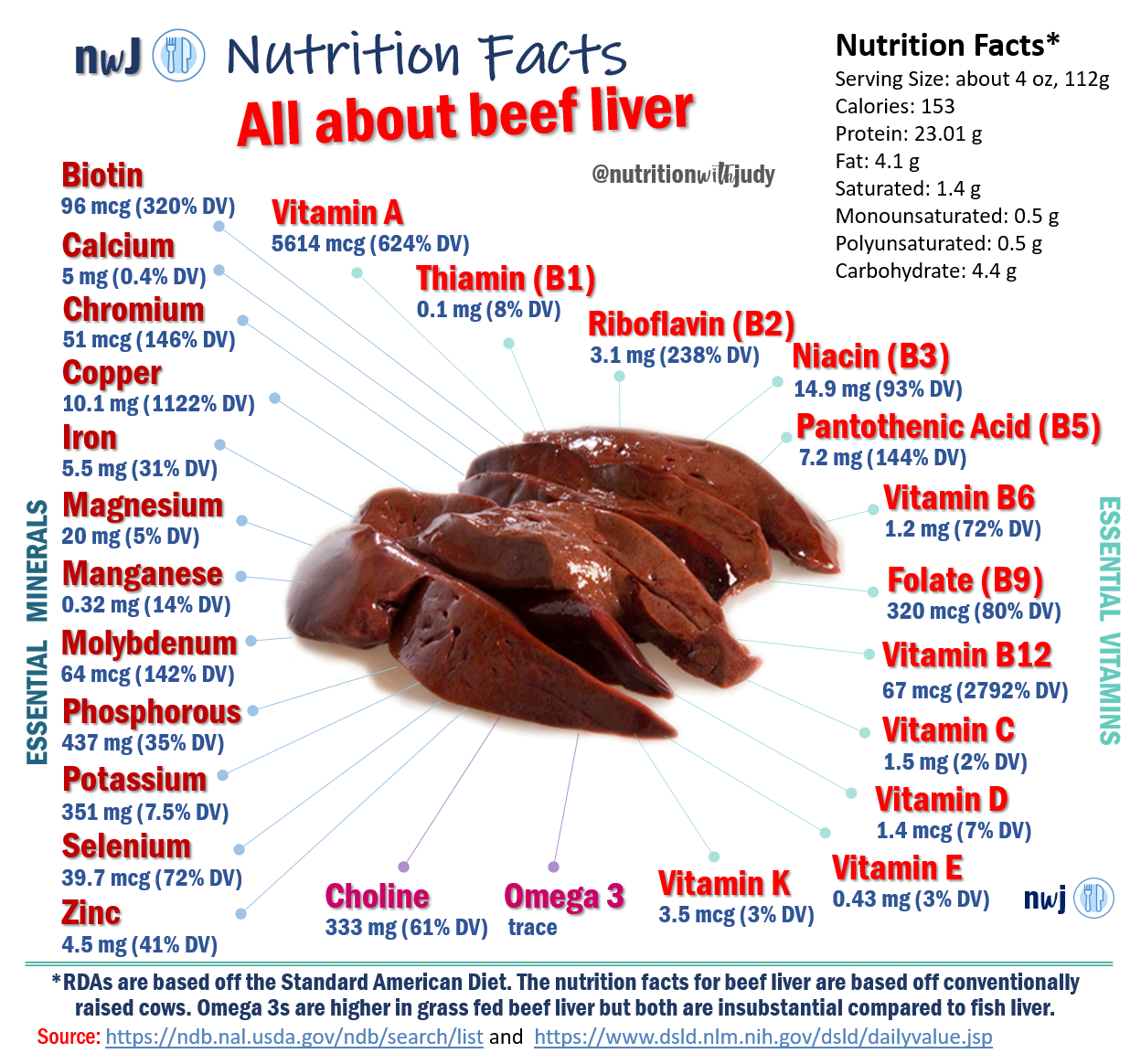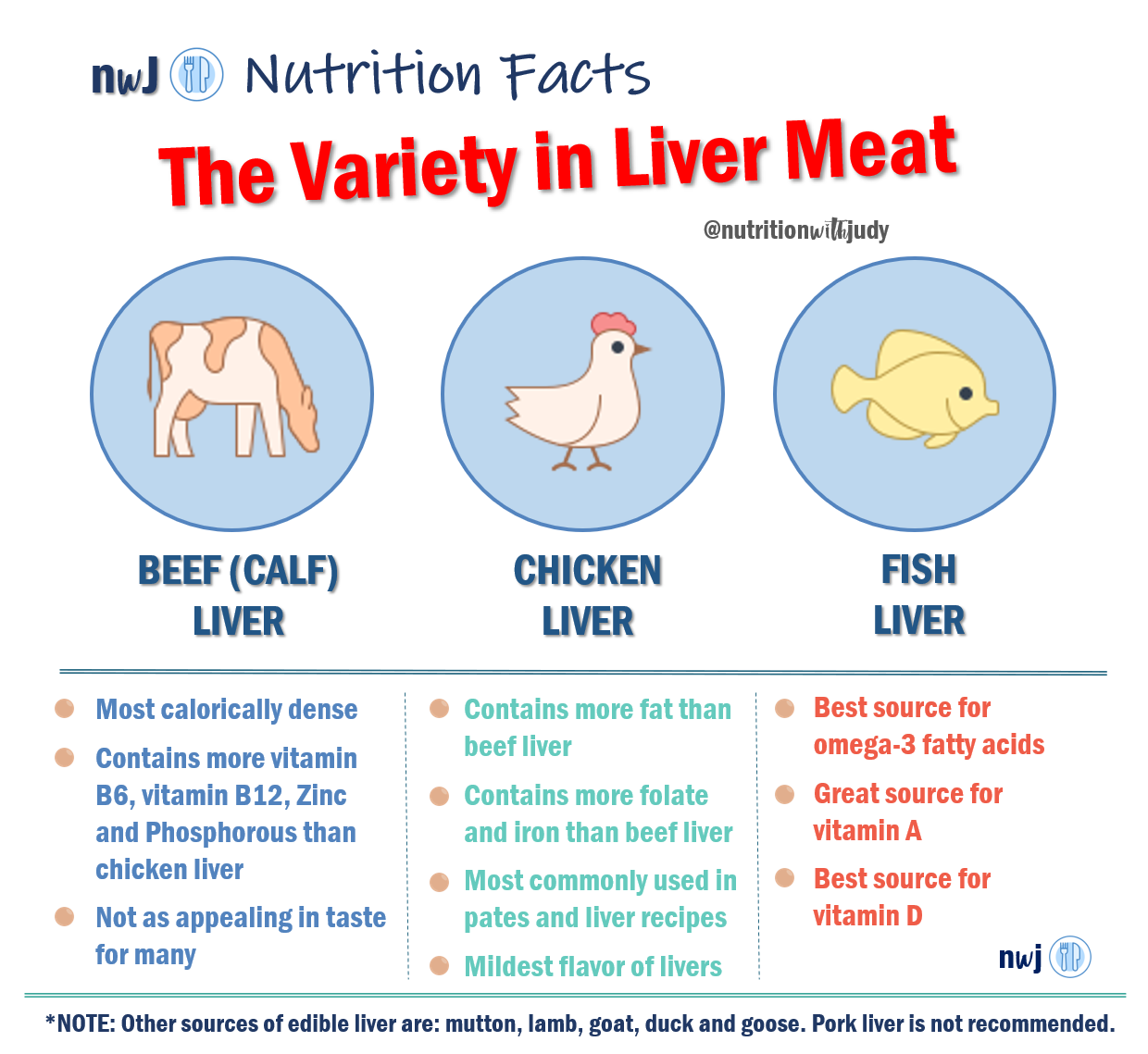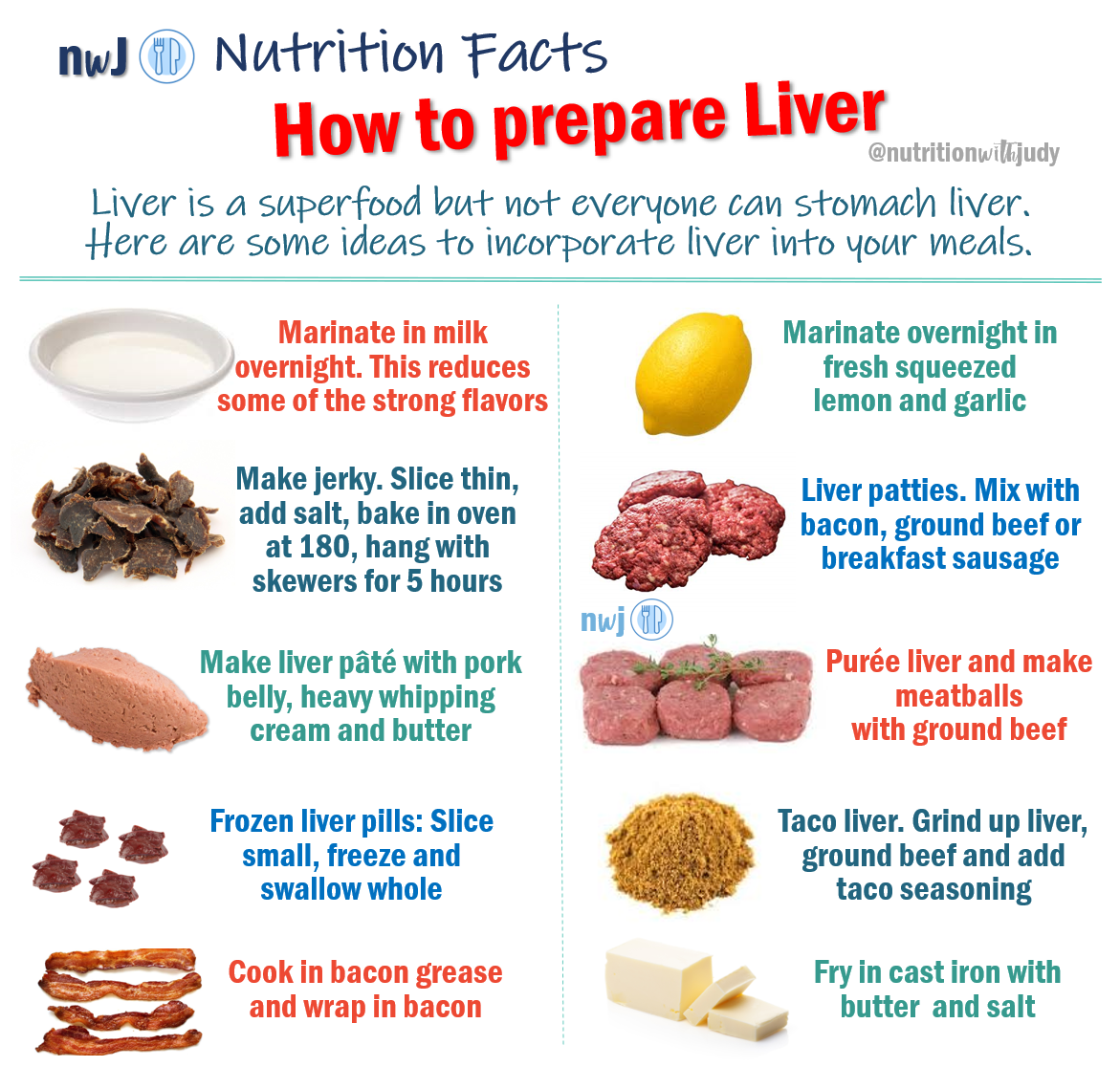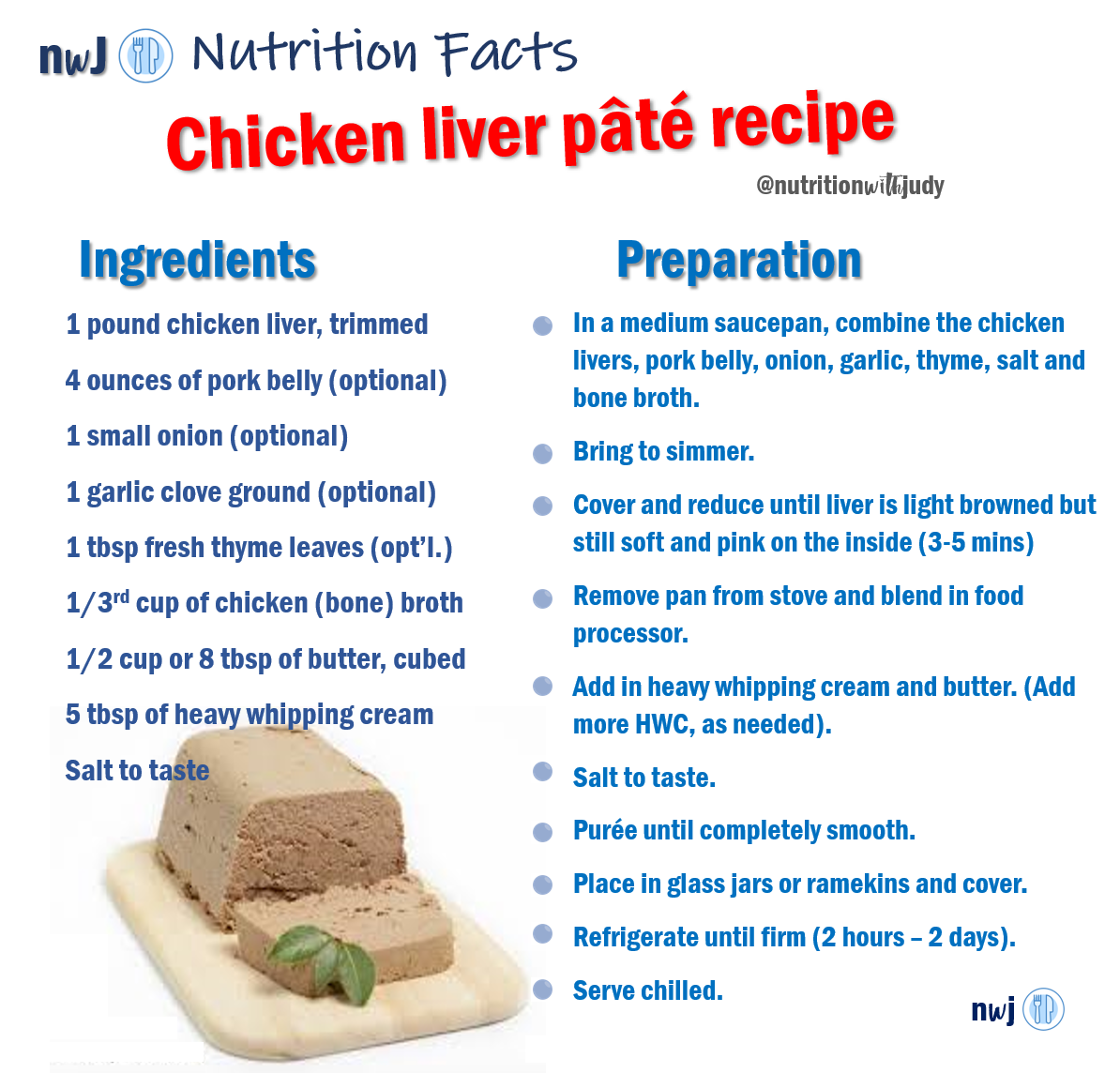
When we think of superfoods, we usually think of fruits and other plant foods. But did you know that the liver is one of nature’s most nutrient-dense foods? Not only does it have almost all the essential vitamins and minerals, but it also is in the most digestible form for our body. Liver and all meats are far more bio-available than plant superfoods. Our bodies not only need nutrients but they need nutrients in the form that we can break down and absorb.

Liver is nature’s most concentrated source of preformed vitamin A. It also contains an abundance of bioavailable B-complex vitamins (esp. B12), choline, biotin, iron, copper, zinc and folate.
The nutrients that comprise beef liver are the building blocks of metabolic, immune, liver, skin, eye, reproductive, and mental health. These vital nutrients also tend to be deficient in our modern diet.
Fat-soluble vitamin A is derived from both preformed vitamin A and provitamin A. Preformed vitamin A (retinol) is from animals. Provitamin A is from plant pigments known as carotenoids such as beta-carotene (carrots). Provitamin A is a precursor to vitamin A—it requires conversion to retinol in order to be utilized.
The absorption efficiency of preformed vitamin A (animals) is 75%-100%, while the absorption efficiency for provitamin A (plants) is only 3% to 90%, depending on genetics. Preformed vitamin A is bioavailable. Provitamin A (plants) requires additional processing for use in the body and then there’s a chance that it won’t be absorbed.
Preformed vitamin A supports a healthy immune system, liver function, eye health, reproductive health, and genetic health. Skin conditions (psoriasis, acne) have been correlated with vitamin A deficiency.
While I’m not giving medical advice, if you have high iron or copper levels, then you may want to limit your consumption of liver. If you’re also taking high doses of vitamin A supplements (not recommended), you may want to limit liver consumption.
In fact, the current recommendation for the amount of liver to eat in order to remain nutrient sufficient without fear of vitamin A toxicity is 4-8 oz per week. Some heavy meat-eaters safely consume 1-2 lbs. a week. Do what works best for your body.
Liver is also touted to have an unidentified anti-fatigue factor. Studies done on rats have shown that something in the liver prevents them from becoming exhausted.
Liver also provides CoQ10, a nutrient important for cardiovascular function. CoQ10 is found in the greatest concentration in the mitochondria (cells’ powerhouse) because it helps produce energy. Maybe this is why when some eat organ, they feel superhuman.

There’s no denying that the liver is a superfood. But not everyone can stomach beef liver.
Try chicken liver which is used in most liver pâté restaurant dishes. It has the mildest of liver flavors. If chicken or beef liver doesn’t work, try fish liver. Cod liver is packed with omega-3s. If you can’t stomach any of these, you can opt for cod liver oil (in a dark glass for less oxidation) or supplement with desiccated liver.
I always recommend a food first approach but do what works best for you, as any form of liver may be better than none.
Pork liver isn’t recommended as it may not be as “clean” of a liver compared to other animal livers. In fact, in the U.S., 1 out of every 10 pig livers tested positive for hepatitis E. Hepatitis E is a virus that infects 20 million people annually (globally) and can cause fever, vomiting, fatigue, joint and stomach pain. It also can cause an enlarged liver and even liver failure and death.
The negative connection with pork liver may also be exacerbated due to the fact that large food corporations make liverwursts and liver cheese with pork liver. Processing organ meat just doesn’t add up to be safe.
Pork, in general, has been linked to having some health issues. But that’s a topic for another day. If you are interested, you can read about a possible link between multiple sclerosis and pork here.
If you do eat pork, just make sure to cook pork thoroughly and try to consume pork liver from trusted sources. Those pig livers tested above were pig livers in conventional products in grocery stores.

What is your favorite way to prepare liver?
Here are some ways to prepare liver. Our family tends to consume chicken liver as it’s the mildest in flavor and just a little less nutrient-dense than beef liver.
Our favorite is to marinate chicken liver in garlic and fresh-squeezed lemon for 24-48 hours. We then wash the liver with water and make ground beef and liver beef patties or make liver pates. For my kids, I always purée liver so that they barely notice the taste.

Here’s a chicken liver pâté recipe. The last time I made this, I marinated the chicken liver overnight in lemon and garlic and rinsed with water. I then cooked the liver with some lard and onion and puréed with room temperature grass-fed butter and mineral salt. It was so tasty and best of all, our kids had no idea they were eating nutrient-dense liver. They know it as pâté. I usually serve the pâté with cheese crisps.
If you don’t consume dairy, try it with ghee or other animal fats. You can always use avocado oil as well.
Everyone can consumer liver, just find the way that works for you. You don’t even need much in a week and the added benefit is that it is very economical. No excuses. If anything, do it for your health and to feel superhuman.
Try to consume liver weekly, as it really is nature’s perfect superfood— possibly the most nutrient-dense and bio-available food we can get our hands-on.









